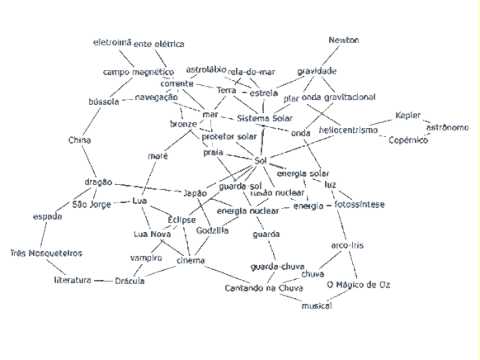Its role is to accomplish the steps that finalize, and therefore validate, the transaction. In acting as a middleman, the clearinghouse provides the security and efficiency that is integral to stability in a financial market. The process of clearing ensures that the entities or parties engaged in a financial transaction are protected, receive their due amount, and the transaction goes smoothly.
- A clearing house would verify this by going into the trader’s account and holding the required margin so that it can’t be used until the transaction is complete.
- The buyer wants to be assured of receiving the goods or services they purchased, and the seller wants to be assured of receiving payment.
- That being said, the trading speed in the financial markets exceeds the time needed to process the trades in the stock exchange.
The responsibilities of a clearinghouse include “clearing” or finalizing trades, settling trading accounts, collecting margin payments, regulating delivery of the assets to their new owners, and reporting trading data. By understanding the differences between these processes, banks can make smart, informed decisions about liquidity management on behalf of their customers. For example, if a business is sending a time-sensitive payment via wire, opting for Fedwire over CHIPS makes sense as Fedwire settles payments in real time.
These include each currency’s interbank settlement network along with systems dedicated to clearing. The Clearing House Interbank Payments Systems, known as CHIPS, is privately operated by The Clearing House (TCH). If payments are not time-sensitive, CHIPS is a less expensive option than Fedwire, which processes gross settlements in real time. The same process applies to any financial transaction that takes place between two or more banks or other institutions. Whether paper cheques or electronic transfers, these transactions must be reconciled through the clearing process.
Rollover Risk: Definition, How It Works, And Example
The Fedwire Funds Service provides a real-time gross settlement system in which more than 9,500 participants are able to initiate electronic funds transfers that are immediate, final, and irrevocable. Depository institutions that maintain an account with a Reserve Bank are eligible to use the service to send payments directly to, or receive payments from, other participants. Depository institutions can also use a correspondent relationship with a Fedwire participant to make or receive transfers indirectly through the system. The Department of the Treasury, other federal agencies, and government-sponsored enterprises also use the Fedwire Funds Service to disburse and collect funds. In 2003, the Reserve Banks processed 123 million Fed-wire payments having a total value of $436.7 trillion.
In this article, we are going to dissect a topic of clearing, its essence, purpose, and types, as well as explain why traders must know about it. To put it simply, clearing is a procedure of processing of non-cash transactions based on mutually offset operations. In essence, the clearing is done in order to match all buy and sell orders in the market. The company continued to operate as it had before, assuming the counterparty risk when two parties trade, guaranteeing the settlement of the trade. To mitigate risk, it imposes minimum requirements on members and collects initial and variation margin, or collateral, for executed trades. Therefore, in a global world with parties trading futures outside of their home markets, a system to coordinate internationally is a must.
In order to act efficiently, a clearinghouse takes the opposite position of each trade, which greatly reduces the cost and risk of settling multiple transactions among multiple parties. While their mandate is to reduce risk, the fact that they have to act as both buyer and seller at the inception of a trade means that they are subject to default risk from both parties. Though wire transfers facilitate the intraday transfer of funds, clearing and settlement do not occur with the same urgency. However, because the wire recipient can already access the delivered funds by the end of the clearing stage, the timing of settlement is more flexible. Banks can settle their accounts and exchange the wire amount either immediately after clearing or later on. Settlement involves exchanging funds between the two banks, while clearing can end without any interbank money movement.
What Are the Differences Between Settlement and Clearing?
In options and futures transactions, it basically acts as a guarantor for commitments undertaken by those involved in the trading process. In the stock exchanges, the organization that acts as an intermediary and performs clearing operations is called the clearing house. It has clearing services for rates, foreign exchange, repurchase agreements, or repos, and fixed income, commodities, cash equities, equity derivatives, and other financial products. In 2003, the LCH merged with Paris’s Clearnet, a clearinghouse for the Paris markets. For example, if a company wanted to purchase a futures contract for wheat from a foreign party, they would need to contact a clearinghouse, which will use the international clearing system to match the trade with another party. The process of clearing a trade includes all actions and events that take place between the commitment to transact and the settlement.
The files in the cache allow the websites you visit most often to load faster, which is a good thing. Plus your browser deletes old files periodically, so it’s not like the cache is going to keep growing forever. For some inexplicable reason, there are two very different ways to clear your cache in Firefox. Depending on which web browser you’re using, the steps to clear your cache might vary.
Canadian Securities Course CSC®
In its absence, one party could back out of the agreement or fail to produce money owed at the end of the transaction. If the trader fails to meet the margin call, the trade will be closed since the account cannot reasonably withstand further losses. The first payment method that required clearing was cheques, as cheques would have to be returned to the issuing bank for payment. Most of the checks the Federal Reserve Banks receives are collected and settled within one business day.
What is the Clearing & Settlements role?
This information comes from local institutions or domestic clearinghouses, which are also responsible for maintaining minimum capital requirements and controlling who is allowed to trade in the first place. Clearing is necessary for the matching of all buy and sell orders in the market. It confirms the specific type and quantity of the traded instrument, the transaction price, date, and the identity of the buyer and seller. It creates more efficient markets as parties interact with the clearing corporation rather than with each other. Clearing houses protect both parties in a financial transaction by ensuring that funds are verified, and everything goes according to plan. If any disputes arise, the clearing house steps in to act as a mediator before it’s sent to arbitration.
Clearing centers or settlement organizations can be entrusted with clearing transactions. In the case of the currency clearing, settlements are made internationally between countries engaged in trade. The function of international clearing was initially performed by the International Commodities Clearing House (ICCH). The ICCH was an independent clearinghouse providing clearing or central counterparty services in several markets. This is all part of the clearing process that takes place between financial institutions. One primary way in which clearing and settlement differ is that clearing determines the commitments of the funds and settlement is how banks do a final true-up with each other.
This money is held by the clearing firm, within the trader’s account, and can’t be used for other trades. A clearing account acts as a temporary account that holds transactions before they are finalized or allocated to the correct permanent account. Sometimes https://forex-review.net/ called a “wash account,” this intermediary account is essential for businesses to ensure accurate and organized financial record-keeping. Accounting often uses clearing accounts for reconciliation, transaction tracking, or other accounting processes.
Why should use Risk Manager you will know below
This not only promotes stability and confidence in the financial markets but also enhances liquidity and overall market functioning. The diagram above shows the simplified flow of a transaction involving two parties, the seller and the buyer, and in between them, the clearing house firm. Because futures contracts take time to be fulfilled, it is beneficial to have a third party (the clearing firm) to ensure that the contract is not broken. If a clearing system like CHIPS has been handling the transaction, CHIPS will send the wire information to a settlement network to settle. If both participant banks have an account with the same Federal Reserve Bank, Fedwire has direct access to their account balances.
Thinking of applying directly through Clearing?
A common fear of traders about the market is getting involved in transactions that don’t end well, with one of the parties not fulfilling their end of the agreement. Clearing houses function to provide extra security so that investors can trade freely, knowing that their investment decisions will be honored and enforced by the clearing firm. Consider an investor who wishes to sell 500 shares of his stock in Emirates Airlines to another investor. It is the clearing house’s job to make sure that the investor gets paid the proper amount for his 500 shares and that the buyer indeed receives the full amount of shares that he paid for.
That is, they typically involve borrowing in order to invest, a process that requires a stable intermediary. When a clearinghouse encounters an out trade, it gives the counterparties a chance to reconcile the discrepancy independently. If the parties can resolve the matter, they resubmit the trade to the clearinghouse for appropriate settlement. But, if they cannot plus500 forex review agree on the terms of the trade, then the matter is sent to the appropriate exchange committee for arbitration. When an investor pays a commission to the broker, this clearing fee is often already included in that commission amount. This fee supports the centralizing and reconciling of transactions and facilitates the proper delivery of purchased investments.
Cómo citar: Conogasi, A. (2020, 01 de Octubre ) What is Clearing? BBC Bitesize. Conogasi, Conocimiento para la vida. Fecha de consulta: Octubre 9, 2025
Esta obra está disponible bajo una licencia de Creative Commons Reconocimiento-No Comercial Compartir Igual 4.0





Deja un comentario
Sé el primero en comentar!